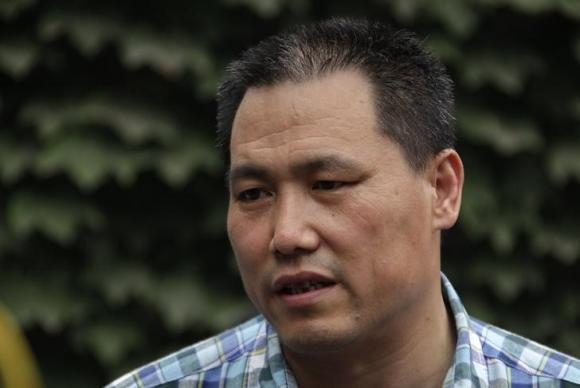Reuters’ Sui-Lee Wee reports that interrogation of arrested rights lawyer Pu Zhiqiang has concluded, though no decision to prosecute him has yet been announced. Pu’s own lawyer Zhang Sizhi claims that the direction of his questioning supports suspicions that the case is politically motivated, saying that “it looks like someone really wants to take him down.”
Beijing police have questioned Pu on his meetings with former U.S. Ambassador to China Gary Locke, who had asked Pu to share his views on human rights, said Pu’s lawyer, Zhang Sizhi. Locke left China in February.
[…] Zhang said Beijing police had also questioned Pu in connection with his postings on Weibo, China’s version of Twitter, that allegedly “insulted” senior officials including Mao Xinyu, a grandson of Mao Zedong, who holds the rank of major-general in the People’s Liberation Army.
[…] Zhang said Pu has admitted to writing those posts, but said he did not mean to insult. If convicted of insulting people, Pu faces a maximum imprisonment of 10 years.
Beijing police also questioned Pu about his frequent trips to Japan, asking him “why he travelled to Japan four times every year”, Zhang said. Pu’s son studies in Japan. [Source]
Read more on Pu Zhiqiang’s case via CDT.
The focus on Pu’s conversations with Locke, Zhang suggests, implies that police could be gathering evidence of “collusion with hostile foreign organizations.” The news comes amid a “war of words” against the West that has seen the State Council-affiliated Chinese Academy of Social Sciences accused of being a beachhead of foreign influence. At South China Morning Post, Erin Hale notes that NGOs’ foreign ties have also come under close scrutiny by authorities, citing employees and founders of NGOs in Henan, Sichuan, Guangdong and Yunnan.
They say that they have all been questioned either orally or asked to fill out a detailed questionnaire about their source of funding, ties with foreign donors and foreign organisations, as well as their day-to-day operations.
[…] “Ever since Xi Jinping came into power, there has been this larger, kind of fairly strategic and fairly proactive tightening of civil and political freedoms, and the crackdown is not only on NGOs, but also on the internet, mass media, universities, limiting, further narrowing civil and political freedoms,” [Human Rights Watch’s Maya] Wang said. “There seems to be a multi-layered or strategic targeting of various facets of Chinese society, which in the past were fairly strong, [and] have grown even stronger in recent years.”
[…] Shui Yan Tang, a professor at the University of Southern California’s Price School of Public Policy, took a more positive view of the situation. Tang […] thought that China’s NGO probe might have more to do with a desire of the government to regulate the work of NGOs rather than crack down on them. [Source]
In April, The Economist (via CDT) reported that Beijing seemed intent on expanding the role of NGOs in China, so long as their goals align with its own.







